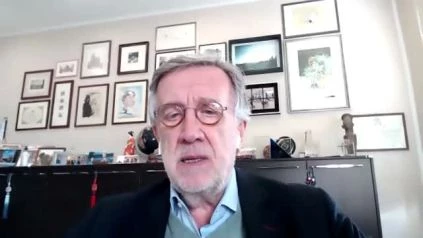Prof. Giorgio Scagliotti Professor of Medical Oncology from the Università di Torino speaks about IASLC Statement on the Updated United States Preventive Task Force Guidelines on Lung Cancer Screening.
Link to Article:
https://www.uspreventiveservicestaskforce.org/uspstf/recommendation/lung-cancer-screening
Recommendation Summary:
* Adults aged 50 to 80 who have smoked for at least 20 years and are either smoking or have quit during the last 15 years.
*The USPSTF recommends annual lung cancer screening with low-dose computed tomography (LDCT) in adults aged 50 to 80 who have smoked for 20 years and are either smoking or have quit during the last 15 years. Once a person has not smoked for 15 years or develops a health condition that significantly reduces life expectancy or the capacity or desire to undergo curative lung surgery, screening should be discontinued.
In the United States, lung cancer is the second most common cancer and the leading cause of cancer death. In 2020, an estimated 228,820 people will be diagnosed with lung cancer, with 135,720 dying from it.
Smoking is the most significant risk factor for lung cancer. Smoking is thought to be responsible for about 90% of all lung cancer deaths, 2 with smokers having a relative risk of lung cancer that is about 20 times higher than nonsmokers. Lung cancer is also associated with advancing age.
Lung cancer is diagnosed at an average age of 70 years. Lung cancer has a poor prognosis, with a 5-year survival rate of just 20.5 percent on average.
Early-stage lung cancer, on the other hand, has a stronger prognosis and is more treatable.

